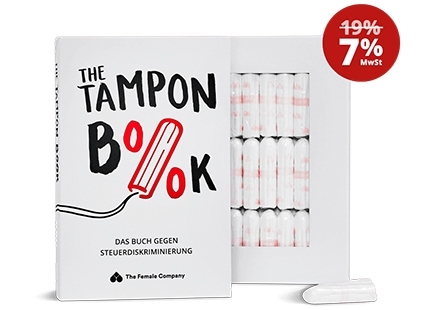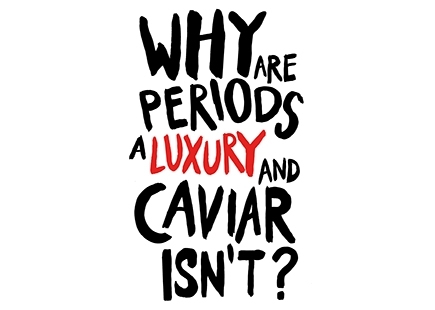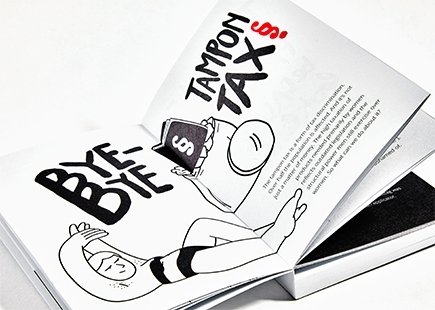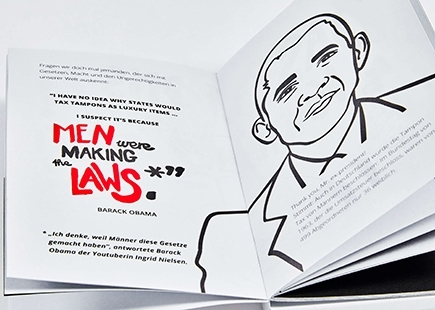Cannes Lions Grand Prix winner: How The Tampon Book outsmarted the law to make a change

The Background
They’re good at making cars, they’re good at taking penalties, they’re good at nabbing the best sun loungers, but I’ve discovered something the Germans aren’t very good at.
Tax.
Specifically, tax on feminine hygiene essentials.
For some reason, the lawmakers in the Bundestag decided that tampons are defined as “luxury goods” and therefore hit with a 19% tax which is really weird considering that oil paintings, caviar and truffles are classified as “daily necessities" and are taxed at the reduced rate of 7%.
Go figure.
When a petition signed by 175,000 people calling on the Government to reduce the levy didn’t prompt a change in policy because the German finance minister reckoned that companies wouldn’t pass on the tax reduction to consumers, it was the straw that broke the camel’s back for Ann-Sophie Claus (no relation to Santa), the co-founder of online organic sanitary products shop The Female Company.
The Big Idea
The Female Company created and published ‘The Tampon Book’.
It cleverly had within its covers 15 tampons as well as 40 pages of great, and sometimes explicit, content.
Stories about menstruation from biblical times to the current era, alongside cracking illustrations.
It sold for the same price as the tampons would including 7% tax (€3.11) as books are taxed at this rate.
What They Did
The first print run sold out in a day.
The second within a week.
The story went big, it got on the agenda of key influencers and the message became a political message. In fact too political for Facebook, who even temporarily banned the content, which did no harm, of course, in generating more PR.
Leading female politicians and members of the German Parliament started sharing The Tampon Book.
Another petition was started on change.org and it very quickly got over 150,000 signatures which means that the German Committee for Legal Affairs now need to formally debate the tampon tax.




The Review
This campaign had PMT. Pretty Magnificent Talkability.
It outsmarted the law using the law itself and provoked a reaction that will now open up the opportunity for gender inequality in the tax system to be discussed again, and hopefully the country’s taxation classification on feminine hygiene products to be reviewed and brought in line.
It is a great example of a campaign that, at its core, is purpose-led and shoots from the hip with the right tone of voice and style to get noticed and shared.
The Female Company will win plenty of fans and advocates for this.
In Hindsight
In reviewing how the story panned out, I felt that perhaps Ann-Sophie Claus didn’t get as involved in the debate and discussion as she could have, considering she was behind the initiative.
The narrative tended to get into a wider political discussion which she wasn’t really a part of.
The story developed and The Female Company got a bit separated from it.
Perhaps some wise corporate PR counsel alongside the brilliance of the creative idea itself might have been useful.
I give this a 4 (and another 1 if the law changes the tax to 7%).
If you enjoyed this article, you can subscribe for free to our weekly email alert and receive a regular curation of the best creative campaigns by creatives themselves.
Published on:



